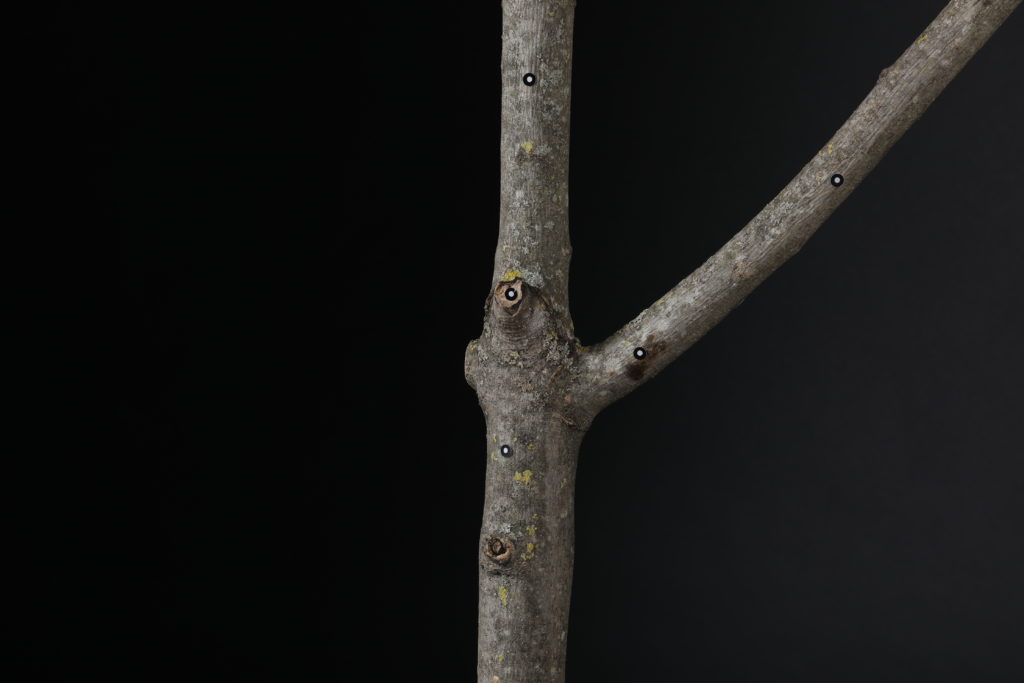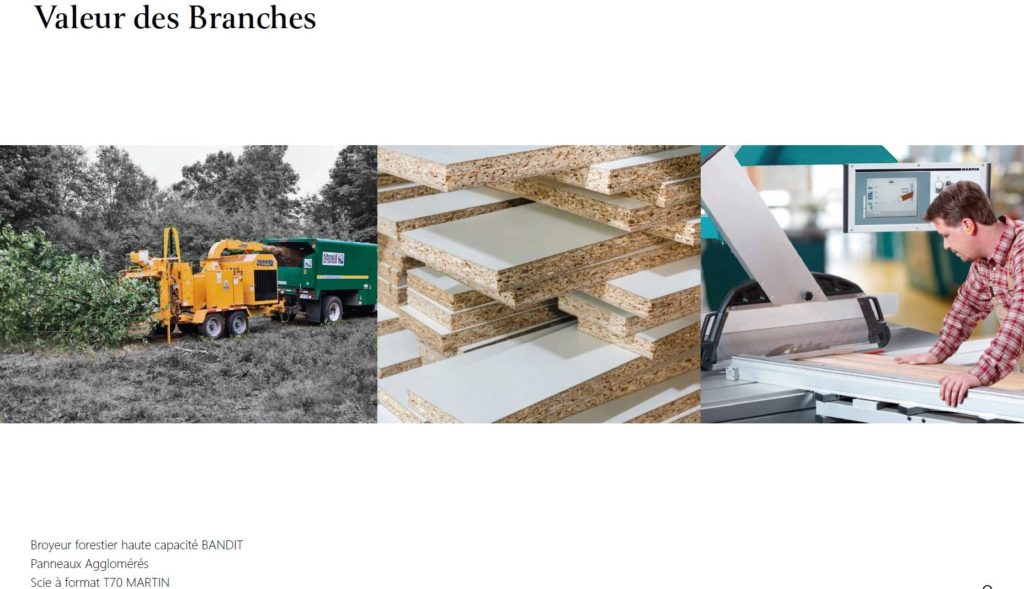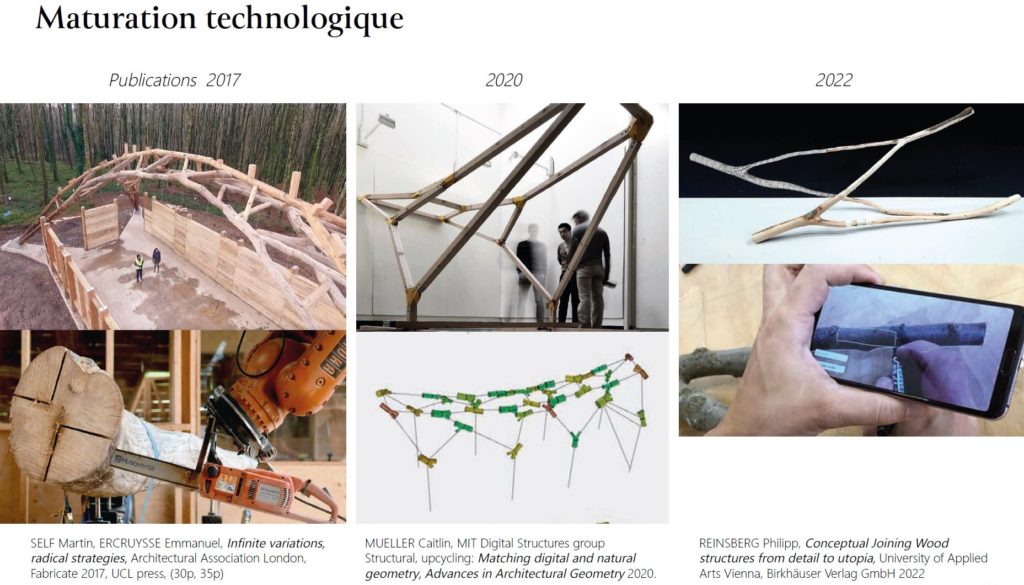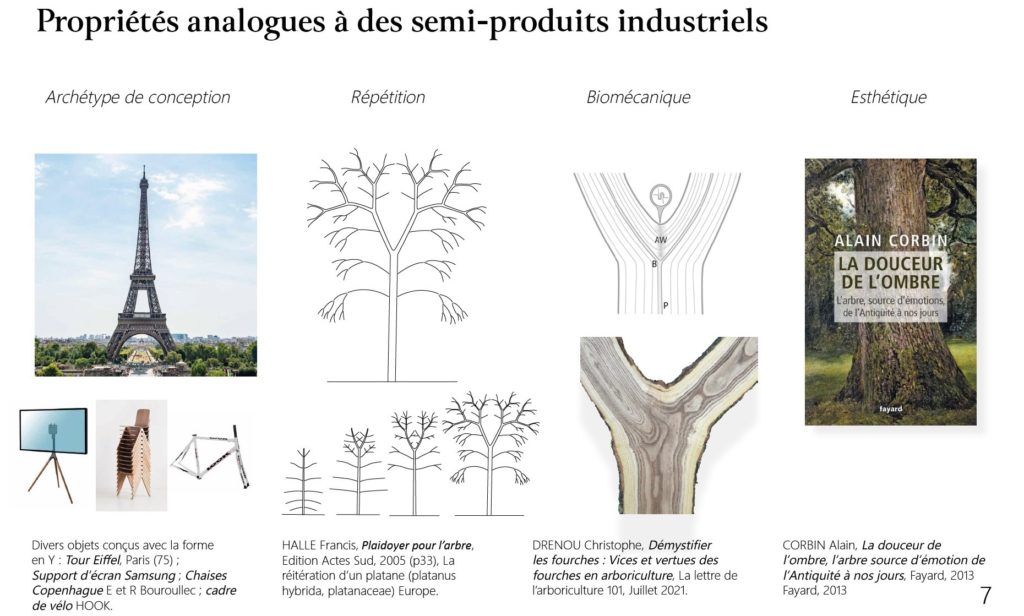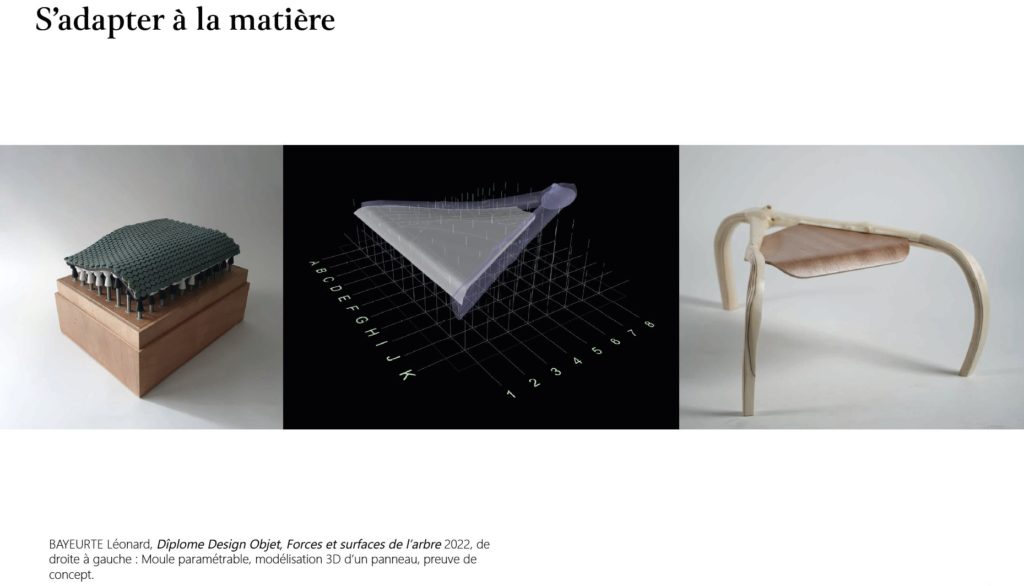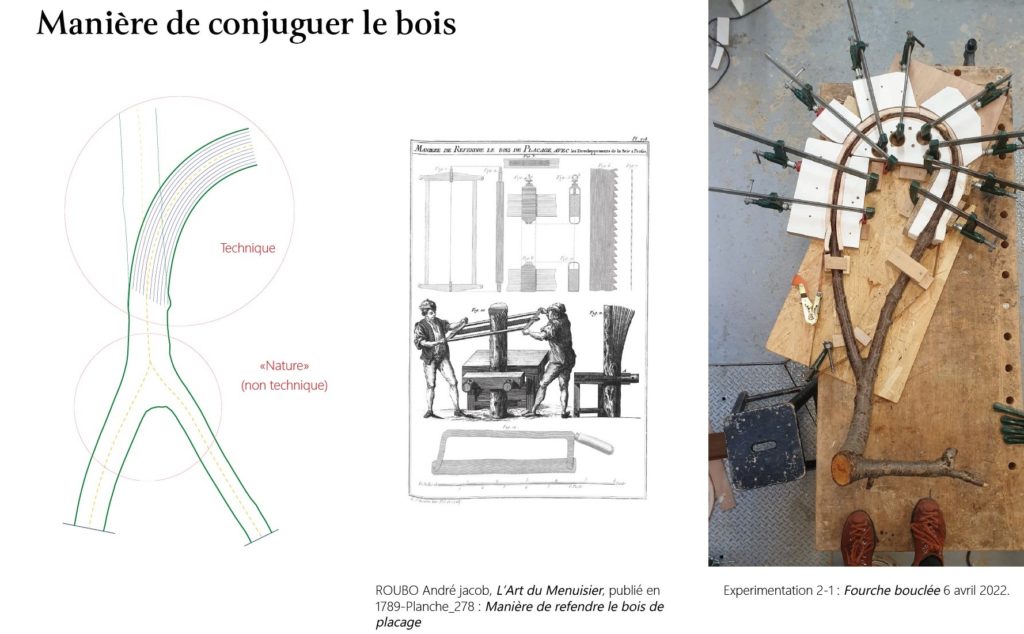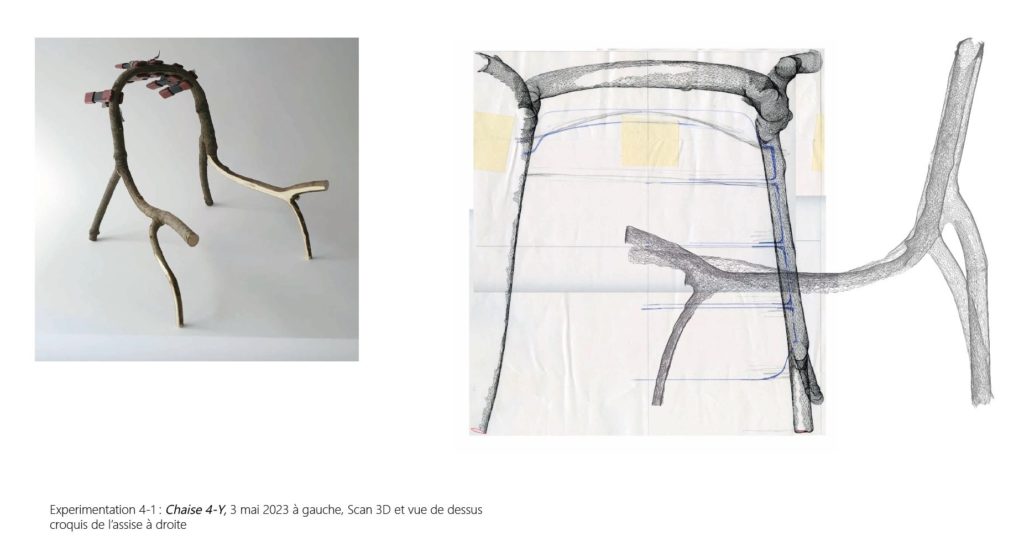LéonardBayeurte
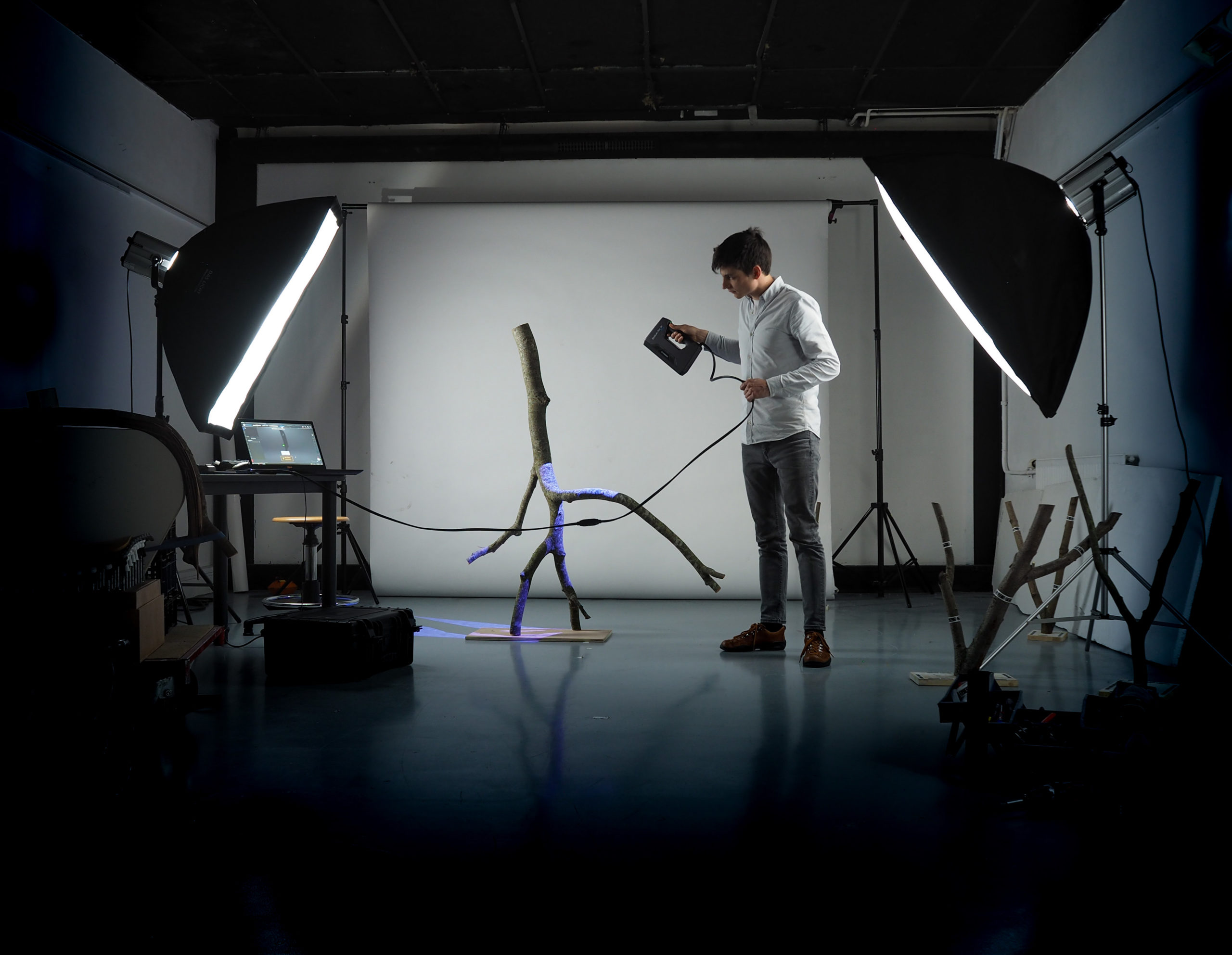
[ Y ] : Hériter, cultiver et transmettre une autre approche de l’architecture des arbres.
Léonard Bayeurte, Campus Mode, Métiers d'Art et Design funded Phd prepared at Ensadlab, Ecole des Arts Déco, PSL University. Supervision: Jean-François Bassereau (HDR).
This thesis is supported by the Campus Mode, Métier d’art, Design and is part of the Conservatoire des savoirs artisanaux of the RE-SOURCE research program. It focuses on two current issues in craft and design:
1) The development of craft skills in line with environmental issues, using digital tools.
2) The renewal of methods for transmitting rare or high value-added skills, induced by cultural and economic issues such as the large number of jobs that remain unfilled in the face of growth in sectors linked to the arts and crafts, and the lack of digital tools dedicated to the transmission of craft skills.
The aim of this practice-based Science Art Creation Research thesis is to demonstrate that the forks of trees (Y) can now be considered as a construction material almost analogous to an industrial semi-finished product. Digital tools seem to make it possible to apprehend tree characteristics that could not be taken into account with traditional tools, and thus valorize forks other than by fragmentation or combustion, while envisaging other modes of harvesting. At the same time, the aim is to explore ways of documenting craft and learning practices that complement analytical (digital) approaches to capturing gestures. Indeed, the learning and preservation of craft skills are not solely linked to the safeguarding of technical gestures. Preserving the vitality of craft skills also involves analyzing the mental processes, sensitivities and internal connections of successive technical systems that are not observable in the gesture, and which need to be documented by other means.
These two phases are rigorously articulated by the Creation Research methodology. Starting with a research problem and hypotheses, R.C. enables the development of observation instruments adapted to a singular practice. Once recorded, it is possible to interpret one’s own practice in the light of a hypothesis that will be validated or invalidated. But also to analyze the practical means and means of observation, which may themselves be called into question. This framework thus enables the development of singular knowledge through the work of forks, which is interdependent with the development of the means of documenting them. Consequently, it is probably because creative research focuses as much on practice as a starting point, as on the means of demonstrating and providing proof of research, that this thesis contributes to addressing the issues raised by the Campus Mode, Métiers d’Arts, Design.
